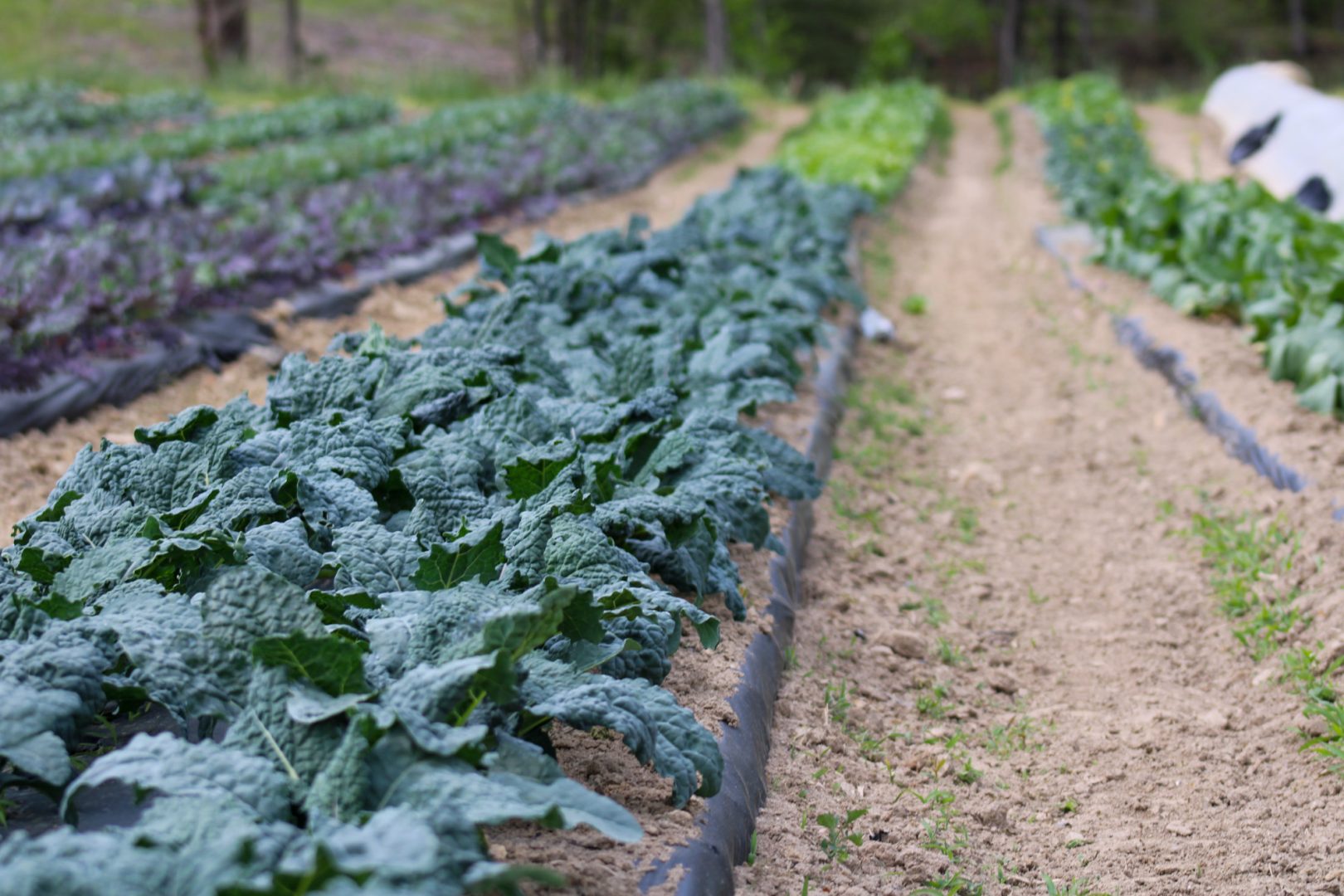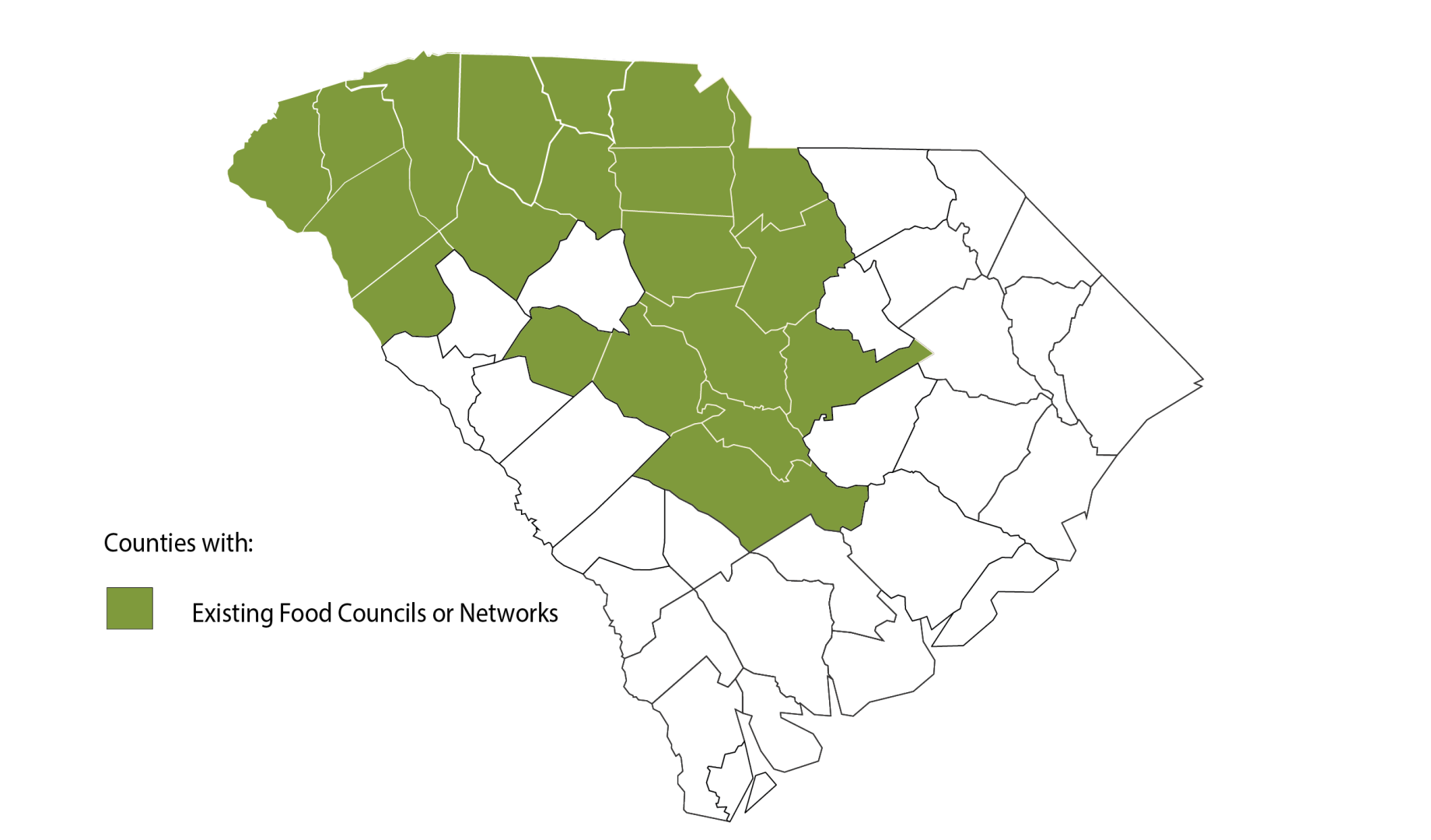Food councils bridge the gap between the different ways food exists and serve to use food to build and strengthen communities.
What are food councils?
Food councils are community-based coalitions that work with diverse membership to create a thriving and equitable local food system.
Acting as a central hub, food councils connect people together. Food councils play a crucial role in giving voice to the communities they serve. Creating space for community members to gather and talk about food, access, and challenges in making connections are where food councils shine.
How do food councils affect change?
- Support farmers
- Increase food access
- Improve community health
- Advance economic development
- Encourage natural resource conservation
Networking Local Food Councils Across the Carolinas
North Carolina has 35 active local and regional food councils and networks, with others emerging. This network stays engaged and connected through local and regional events, social media, and conference calls.
Visit Community Food Strategies for more information on NC food councils.
South Carolina has three active regional food networks – the Catawba Farm and Food Coalition, the Midlands Food Alliance, and the Midlands Local Food Collaborative.
There are also three local food councils: the Columbia Food Policy Committee, the Spartanburg County Food System Coalition, and the Greenville Food and Farm Coalition.
There is also the South Carolina State Food Policy Council, which exists to advance the consumption and production of healthy foods throughout SC through education and strategic policy planning.
Empowering Communities
CFSA is part of the Community Food Strategies team, a multi-organizational group of food system experts that provides leadership and technical support to communities interested in food council development across the Carolinas.
The Center For Environmental Farming Systems (CEFS) took a lead role in initiating Community Food Strategies. Additional Community Food Strategies partners include Appalachian Sustainable Agriculture Project, Care Share Health Alliance, the Committee on Racial Equity in the Food System at CEFS, and The NC Rural Center.
Community Food Strategies’ Strategic Advocacy Toolkit for Food Councils offers a systematic approach to engaging in relationship building and policy change.
Advocacy that follows a strategic plan increases the likelihood that your work will make a lasting, positive impact on your community. This toolkit walks you through the steps your food council can take to foster meaningful relationships with your community’s policymakers and strategically affect lasting policy change.
For more information about direct technical assistance with this toolkit, please email Jaylen Cates, CFSA Policy Director, or fill out this application form.
And take a look at CFSA’s grassroots manual for organizing locally to support sustainable food and farms.





